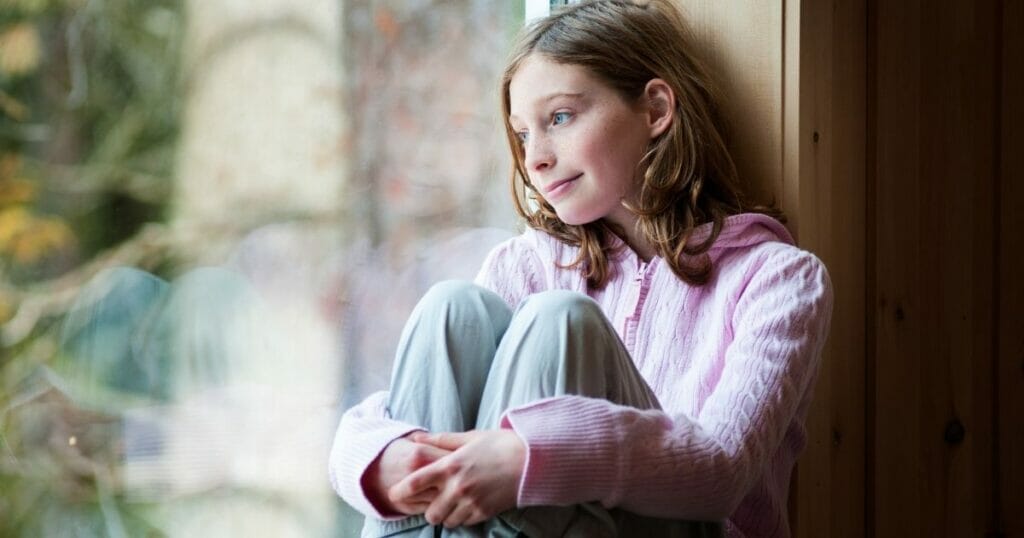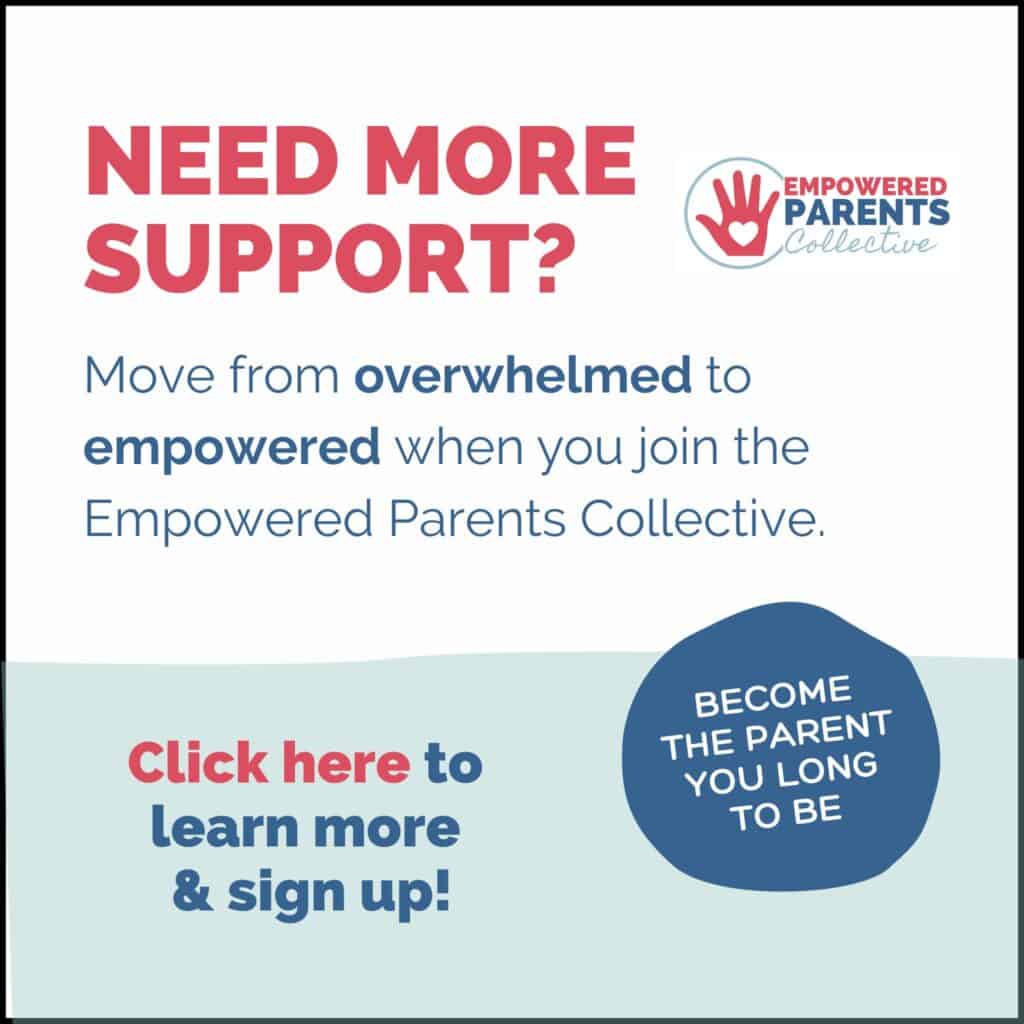Why We Need to Let Our Kids Experience the Natural Consequences of Their Actions
Letting our kids experience the natural consequences of their decisions and actions can strengthen their confidence and self-sufficiency – but only when our kids are developmentally ready and only in certain circumstances.

It’s a beautiful, sunny day and your daughter is eager to do one of her favorite things: ride around your neighborhood on her scooter.
“Rain’s coming tonight, so be sure to put your scooter in the garage when you’re done,” you advise her as she heads outside.
She agrees, puts her helmet on, grabs her scooter, and rides down your driveway.
A few days later, as you’re taking care of a bit of gardening, you notice her scooter lying next to a tree. The rain hasn’t let up for several days and it looks like water has done some damage.
You know it will break your daughter’s heart if she discovers her scooter is no longer in good condition to use. And it hurts you, too, to think of her disappointment over this mistake.
In that moment you’re stuck in a dilemma: do you buy your daughter a new scooter since, after all, she loves it so much? Or, do you let her experience the natural consequence of her decision, and have her save up her allowance to buy a new one?
What are natural consequences and what role do they play in parenting?
Natural consequences are the unavoidable pains and penalties we experience when we make poor or irresponsible decisions.
Because we’re human, and make mistakes, we’ve all experienced a natural consequence at one time or another. For example, you forget your wallet on a trip to the store and have to return home to get it. Or you accidentally leave out the baking soda when making banana bread and have to throw away the results.
Since we either forgot or chose not to take a responsible action, we naturally experience a consequence. No one imposed this consequence on us; it was just the natural outcome of our actions.
Logical consequences, on the other hand, are imposed upon us by others – like if we park in a restricted zone and then receive a parking ticket.
Not always, but typically, the experience of a natural consequence is so unpleasant (by varying degrees) it serves as a good lesson and makes us unlikely to repeat the mistake.
Just like adults, children have much to learn from experiencing the natural consequences of poor decisions. And, as is normal, kids tend to make poor decisions all the time.
Examples of natural consequences kids may experience:
- Your teenager refuses to organize her room and then can’t find her library card, so she has to pay for another one.
- Despite your warning, your son overloads his backpack and struggles when he carries it home that afternoon.
- The bike your daughter bought with her allowance is left outside in the rain and rusts. Now she has to save up for a new one.
- Your teen forgot to clean her favorite blouse before school picture day and now has to choose a different outfit.
- Your son forgot to empty his lunchbox over the weekend and now has to clean it, despite the foul smell.
- You warn your daughter that it’s supposed to rain in the afternoon, but she disregards your comment, doesn’t bring a raincoat to school, and gets wet
- Your son procrastinated over the weekend and discovers he isn’t well-prepared for his science test on Monday
It can be agonizing for a parent to see their child experience unpleasant natural consequences of their actions. But it’s important, whenever appropriate, for children to learn that their actions matter.
But not all kids are developmentally ready to absorb these lessons and sometimes letting natural events unfold isn’t in our child’s best interest.
Developmental readiness and learning from natural consequences
Research shows that young children aren’t mature enough to connect their actions to a natural, negative result until they’re at least six years old.
If, for example, a toddler decides to go to bed late, he’s unlikely to realize this action caused him to feel sleepy the next day.
And after sneaking too much candy, a four-year-old won’t be able to connect his diet to his now-upset stomach.
Between the ages of six and thirteen, kids will gradually be able to connect some of their actions to consequences (for example, not putting on gloves and then getting cold). But more abstract connections can still be difficult, especially for young children (such as staying up late and feeling cranky the next morning).
So it’s not until our children become teenagers that experiencing natural consequences – both concrete and abstract – can be considered a valuable lesson they’ll learn from.
When it’s inappropriate to let kids experience natural consequences
While letting a child experience a natural consequence (when it’s developmentally appropriate), can be an important learning experience, that’s not practical or wise in a number of situations:
When the child is in danger
While our ancient ancestors might have let their children learn what happens when they touch fire or jump from a high rock, modern parents agree that it’s our job to keep our children safe.
When natural consequences are unhealthy
Kids and even teens shouldn’t be left to their own devices when it comes to eating too much junk food or not brushing their teeth, for example. Not only could this do irreversible damage (such as cavities), young children, in particular, are not able to connect their actions with the unfortunate outcome.
When a natural consequence interferes with the rights of others
We can’t let our child throw a rock at another child and then sit back as our child learns from that experience. This, of course, puts the other child in danger and our inaction could cause our child to believe hurting others isn’t a problem.
The best way to react so your child can learn
As with most of what we do as parents, our reaction when our child experiences a natural consequence plays a big role in what they learn from it.
Avoid lectures
First, it’s important to recognize that our children don’t need us to inform or remind them that the consequence they experienced wasn’t desirable.
The ten-year-old who left her gloves at home probably realizes that wasn’t a good idea when her hands were cold at recess. And the teen who didn’t dedicate enough time to study for a test, and then did poorly, probably recognizes where she went wrong.
Telling our child that they were at fault will not cause them to learn more from the situation. It will only make kids defensive, feel worse, and not want to turn to us for help in the future.
Validate feelings and show empathy
Instead of lecturing, the best thing we can do as their parent, (and ultimately their coach) is to validate our kids’ feelings and show empathy.
Validating our kids’ feelings with such statements as “that sounds embarrassing” or “that must have been awkward” will help our kids feel understood, build their confidence that they can overcome this challenge, and feel safe in their relationship with us.
Showing empathy doesn’t condone the mistake; instead, it helps our child heal and build resiliency. Our children will need comfort after experiencing the negative effects of a natural consequence.
If you doubt your child is really connecting the dots of his or her mistake to the outcome, the respectful approach is to gently ask: “What do you think caused that to happen?” or “What do you think you could do differently next time?” Getting kids to think for themselves will make the lesson stick more than a scolding.
Comfort (but don’t rescue)
Since our children may be struggling with the natural outcome of their decisions, they could use comfort from us to help them heal.
It’s tempting in that moment of showing comfort to save our kids from their hurt feelings and make the unfortunate situation disappear. Instead, in order to help our kids learn from their decisions, we can offer guidance.
It’s also appropriate to be explicit with our children why we won’t rescue them, especially if it obviously would be easy for us to do so. Letting our kids know that we have faith in their ability to handle the unfortunate situation builds confidence and lets them grow in maturity (even if they’re not happy with our decision in the moment).
We can comfort our kids simply through a hug or asking them questions to help them problem solve. For example, we can say: “It’s unfortunate you forgot to clean out your lunch box. How could you remind yourself to clean it out next time?” Or we can suggest possible solutions, such as: “A warm shower would feel good after being stuck in the rain.”
Tell your child what you will do
A final way to respond to your child’s circumstances – although it’s best to state this before the consequence is felt – is to tell your child what you will do. This also makes it more understandable why you won’t save your child when a negative situation arises.
For example, you could tell your children that you only wash clothing that is in their hampers (not on the floor) or that you do not have the ability to drive forgotten items or homework to school.
Stating these parameters ahead of time, in a loving, respectful way, continues to send the message to kids that you have faith in their ability to be responsible.
Preparing our kids for life
Letting our children experience the natural consequences of their decisions is an important life experience as they prepare to enter the world on their own.
With our love, support, comfort, and coaching our kids will begin to not only make better choices independently, but will also learn that they can recover from their mistakes.
As they enter the world of adulthood, our children will then be better equipped to demonstrate responsibility when it matters – such as paying bills, submitting work assignments on time, or making wise decisions with friends. And more so, kids become better problem-solvers and long-term thinkers when given the chance to handle natural consequences early on.
Keeping this long-game in mind can help us as we see our kids struggle through the less consequential challenges they face as children and teens.
See related:
Why Consequences Aren’t Working to Change Your Child’s Misbehavior (and What Will)
How to Stop Doing Everything for Your Kids and Teach Responsibility
Kind but Firm: How to Discipline Kids While Reaching Their Hearts at the Same Time
What to do next…
1. Subscribe to Self-Sufficient Kids’ email list.
Like what you read here and want to learn more? Every Thursday I’ll send you one parenting tip about raising self-sufficient kids and creating the peaceful relationship you yearn to have with your child. Click here to sign up.
2. Take one of my quizzes!
Find out if you’re raising a self-sufficient kid (click here) or if you’re doing too much for your kids (click here). At the end of each quiz, you’ll be asked to provide your email address to see the results.
3. Get your kids started on chores.
Learn how to get your child started on chores (& keep them motivated + avoid power struggles) by enrolling in my Get Your Kids Successfully Started on Chores course. Click here to learn more and sign up.

About Kerry Flatley
Hi! I’m Kerry, the mother of two girls and a certified parent educator. I believe it is possible for parents to have a supportive, loving, and warm relationship with their kids while raising them to be independent and ultimately self-sufficient. Over the years, I’ve read numerous books and articles that support this belief and I’ve put these ideas into practice with my own kids. Read more about me and Self-Sufficient Kids here.


